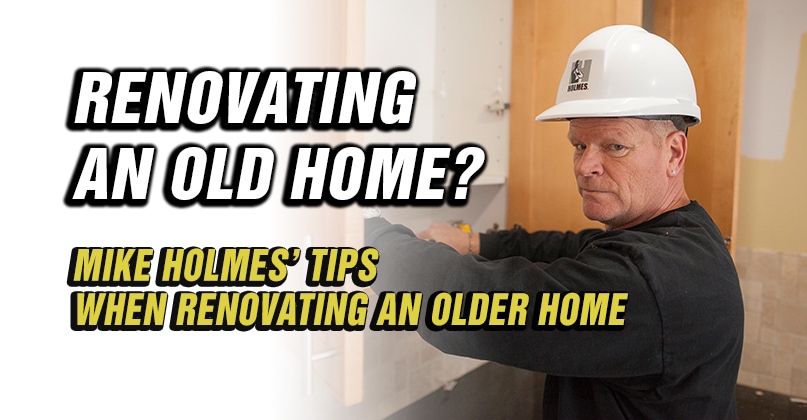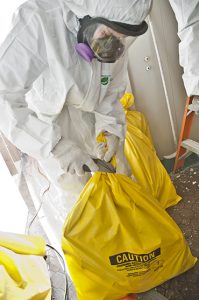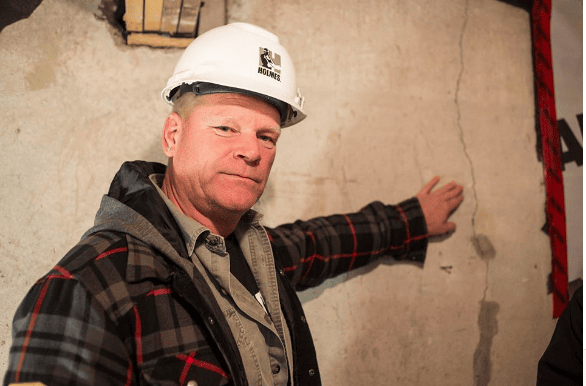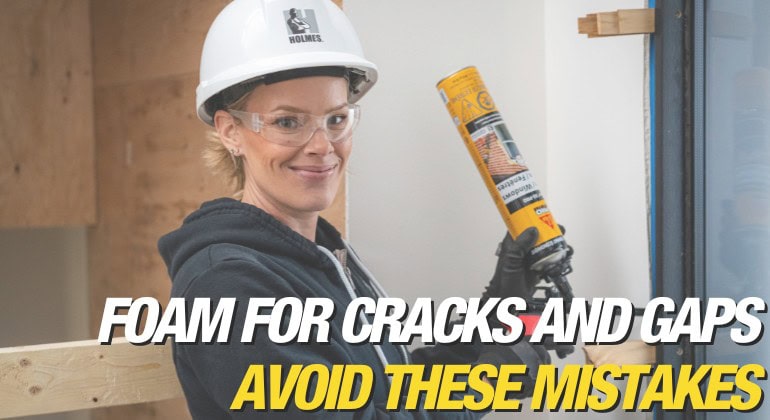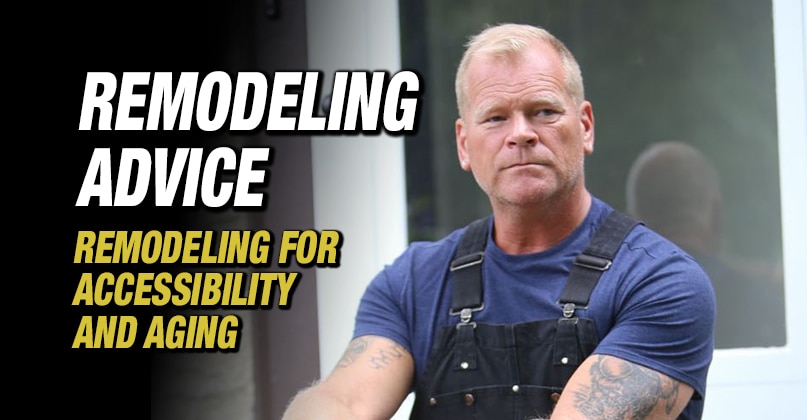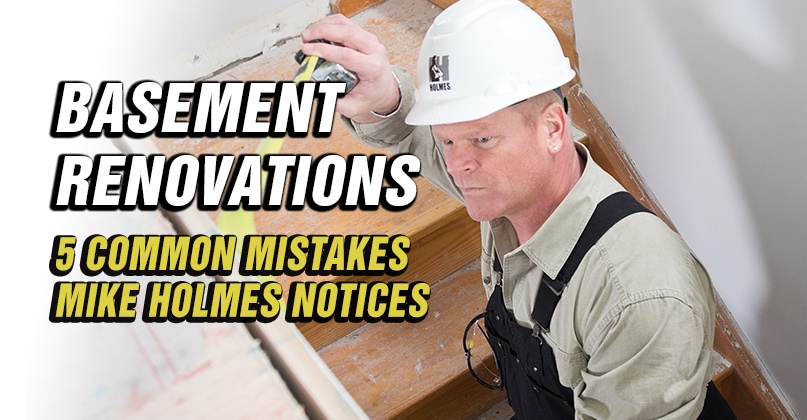Dream of a career where your skills bring joy, enable freedom, and create unforgettable memories? The thriving recreational vehicle (RV) industry offers just that! It’s more than fixing vehicles; it’s...
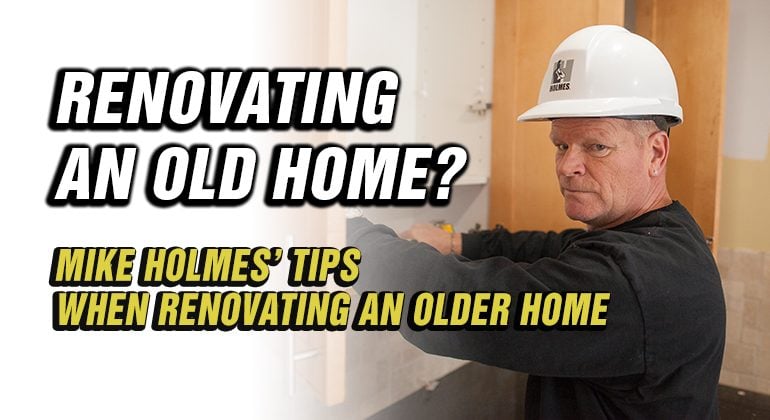
Tips When Renovating An Older Home
By Mike Holmes
Mike’s Advice / Home Renovation
Friday, September 2nd, 2022 @ 3:32pm
Renovating an Older Home? Read This First.
I’m in the renovation business and business is booming. Everyone is renovating, which is one of the reasons it’s so tough to find a good contractor. Consider the age of your house when deciding on kitchen renovations, bathroom renovations, home improvement renovations and house additions.
If you are buying an older home to renovate and bring it up to date, be sure to do your homework—it can also be a money pit. Here are some things to consider when buying an older home.
Understanding Asbestos & Home Renovations
Many older homes and buildings today still contain asbestos. When we started demo on the River House on Holmes+Holmes, we realized that there was asbestos. When asbestos fibres are disturbed they get released into the air, and if they’re inhaled they can get trapped in the lungs and cause serious health issues, including cancer. Canada has one of the highest rates of mesothelioma, which is a type of cancer caused by asbestos.
Although asbestos isn’t currently used in construction materials anymore, there are still many homes that contain asbestos—usually older homes. Any home built before 1980 should be professionally checked for asbestos, especially if you’re planning a renovation or investing in home improvement projects. If your home has materials containing asbestos, getting them properly removed by a professional company through remediation can drive up the cost of your reno.
There are many materials that could contain asbestos. Read more here.
We use Canada Restoration Services for Mold and Asbestos remediation. Fantastic team, highly recommend them.
Get To Know Your Wiring
Older houses can be a spaghetti factory of wires—copper, aluminum or even knob and tube–often mixed together.
If you are using about the same amount of electricity as people used in the 40s and 50s, then there may not be any issue with your wiring. But that is rarely the case. Old wiring was designed for different amperage, when people just didn’t use as much electricity. Most insurance companies won’t even insure houses that have knob and tube wiring.
Ask your Licensed Electrical Contractor to do an assessment of your home’s electrical system. This is not the same as a home inspection because it just focuses on the electrical. You can find a certified electrical contract in the US here.
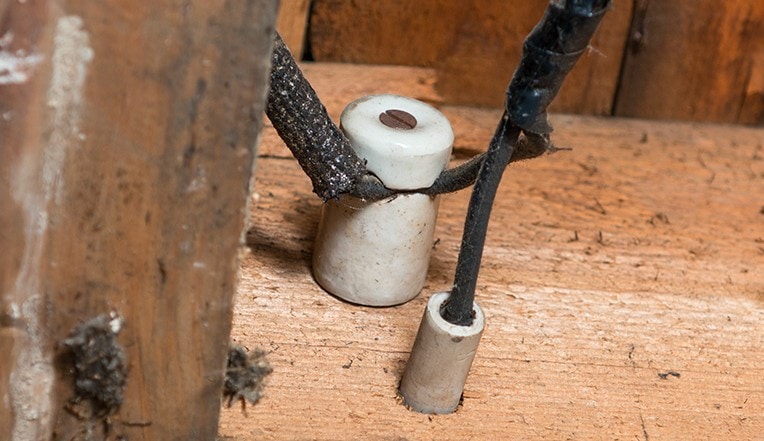
Knob and tube wiring can be a safety concern and will definitely impact any renovations you might have planned.
Is Knob and Tube Wiring Dangerous?
Absolutely. First it leads to blown fuses–then homeowners replace 15 amp fuses with 30 because their fuses keep blowing. Which leads to overloaded circuits and possibly electrical fires.
How Can You Tell If The House Has Knob & Tube Wiring?
- In older homes, one plug was usually all you got in a bedroom. If there are two or three outlets, you can bet there is old and new wiring patched together.
- New plugs installed with new wiring to make it look like the entire wiring was replaced. Sometimes it could be attached to old knob and tube about four inches away inside the wall.
- Any time you find surface wiring run along the top of the baseboard and around the door casings, it’s likely you have new patched into old.

Before and After – Hasler Homes (Vancouver), a Holmes Approved Builder.
Replacing Windows in Older Homes
The windows in older homes usually need replacing. Old windows are often inefficient. You may notice drafts and air leakage or even water damage. Things have changed a lot in the window industry. Now you can buy windows that are specifically built to reduce drafts and air leaks. For example, vinyl, fiberglass, and wood have a high R-value, which measures how well they insulate. Newer windows also use modern weatherstripping to cover any gaps between the window or door frame and the wall. Here are 5 signs your windows might need replacing.
Code Changes
Code changes means you might run into unexpected expenses when renovating your home. In some areas in North America, renovation work is required to follow the current building code that’s in effect. For example, 50 years ago our structures were designed for lower wind pressure and snow loads. As more information was collected, building codes were updated to improve the safety of the structure.
Missing Insulation
There are two issues with insulation in older homes. Firstly, houses built before 1940 were rarely insulated. Secondly, if there is insulation, it may have deteriorated over time. Your walls, roof and attic are common areas where heat escapes from. You will likely have to upgrade your insulation if you buy a house built before the 1950s. Here is a guide on preventing heat loss in your basement.
Foundation Issues
Cracks develop in homes over time. Not all foundation cracks are a cause for concern. It’s best to have a structural engineer come out to assess the damage. Foundation problems are among the most expensive issues to repair so budget accordingly!
RELATED: How serious is a crack in my foundation?
Problems In Older Homes
When budgeting for a home renovation, I always recommend getting a pre-reno home inspection done. A home inspection can alert you of safety issues prior to starting work, so you can budget appropriately. It will point out deficiencies in your home. Here are some other issues with older homes:
- Rusting pipes
- Rotting beams
- Mould and termites
- Water damage
- Hazardous framing
- Uninsulated walls and ductwork
- Undermined foundations
- Damaged exteriors, such as cracks in plaster.
RELATED: ARE OLDER HOMES BETTER?
Don’t skip the home inspection for an older home
My Mike Holmes Inspections team services most areas in Canada. If you want honest, thorough, unbiased home inspections, get in touch with my team.
In Holmes Next Generation, we got to work on a Heritage Home which presented its own set of issues. His transformation was awesome though, check out the before and after here:
Potential buyers need to do their homework. Always hire an inspector to check out any home you’re thinking of buying. But especially if you’re thinking of buying an older house.
Look for a Holmes Approved Homes renovator in your area.
READ NEXT:
Buying a Home? Read This First.
